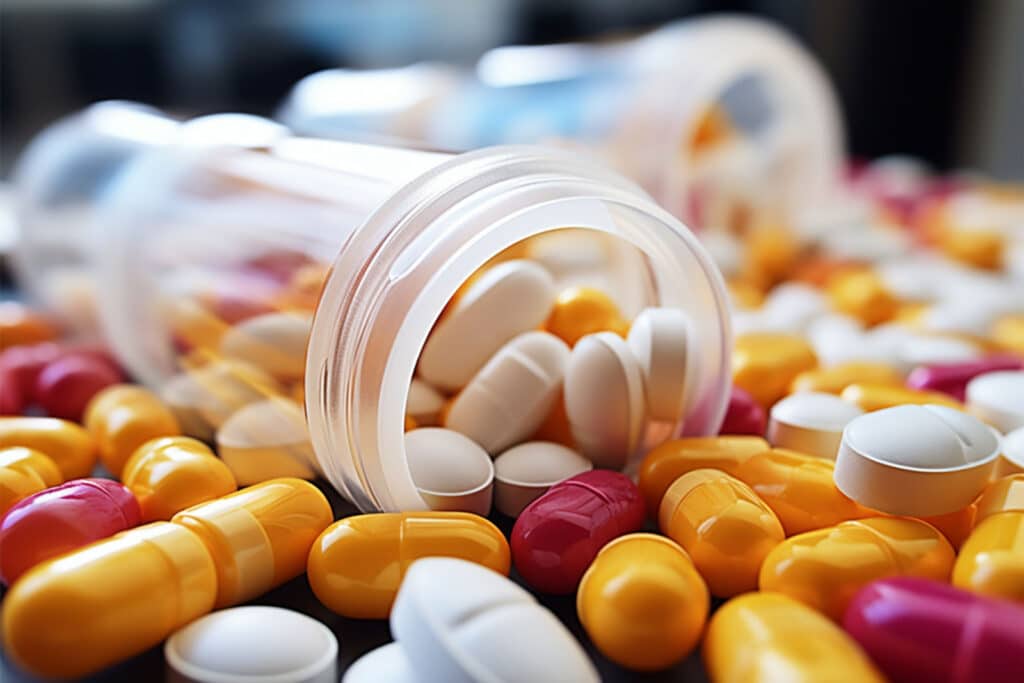Stimulants belong to a class of psychoactive drugs that provide corrections in regards to physical and mental functioning. This means they will elevate your mood, increase any feelings of general well-being, increase energy, and increase alertness.
Prescription stimulants are generally prescribed to treat attention deficit hyperactivity disorder. ADHD is one of the most common mental disorders in children and also affects many adults. Symptoms of ADHD include the inability to keep focus, hyperactivity, and impulsivity. The most common stimulants that are prescribed are Adderall, Ritalin, and Dexedrine.

Table of Contents
Why Do They Calm Me Down?
To put it simply, stimulants likely calm you down because you are one of the many who have ADHD. Taking stimulants when you do not have ADHD often leads to side effects that mimic symptoms of ADHD.
Every person’s brain and nervous system functions based on how your brain’s neurons communicate across synapses. These neurons relay important information via the transmitters throughout your brain. For all of these pathways to work efficiently, your neuron must both produce and release through the neurotransmitter, and it needs to stay long enough for it to bind to the receptor site. What occurs for individuals with ADHD is that the neurotransmitter is reabsorbed early back into the neuron. This means they cannot adequately relay the messages. That is where the medication helps!
More About Why Do Stimulants Calm Down?
The chemicals norepinephrine and dopamine in the brain are responsible for playing a key role in regulating executive function and attention. Stimulants work by increasing dopamine in the brain by slowing down how much is reabsorbed back into the brain. This effectively helps the neurotransmitter hold in synapse long enough for the message to be sent and received. This results in improved communication and activity in the areas of the brain that operate with the help of norepinephrine and dopamine.
When the communication within your brain is improved with the help of stimulants, your focus, energy, hyperactivity, and impulsiveness are all improved, thus calming you down.
Two Different Kinds of Stimulants
There are two different main active ingredients in ADHD medications, and they do slightly different things. The first is called methylphenidate. It works by increasing the amounts of dopamine in the brain by blocking any reuptake of norepinephrine and dopamine.
So basically, it lowers how much is reabsorbed into the neuron. Methylphenidate stimulants include Concerta, Focalin, Metadate, and Ritalin. The other active ingredient is amphetamine. It works by increasing the release amount of dopamine and norepinephrine out of its storage sight and into the synapse. Amphetamine stimulants include Adderall and Vyvanse.

Dangerous Stimulant Dependence
Even if you have a prescription from a doctor for a stimulant, it is possible to develop a dependence on it. But, of course, you will develop a dependence on anything if you take it long enough.
Stimulants are even more dangerously addictive for those who don’t need it because it produces feelings of euphoria, excessive energy, and excitement. They are very common for college-age students because they abuse them to increase the amount of time they can study and believe it will enhance their cognitive ability; unfortunately, while they will keep you awake, there is no evidence to show they will improve your retain information.
Start Professional Treatment For Stimulants Addiction!
Prescription stimulants are useful for treating those with ADHD by helping to calm you down, but it does not come without its risks. If you want to stop taking your prescription stimulant, you should consult with a doctor first. If you are dependent or addicted to stimulants, we are here to help you in your journey.
Contact us and talk to one of our addiction specialists and they will help you find the best treatment to help you overcome your addiction. We offer a variety of treatments from medication-assisted treatments to residential treatments, chances are there are ones that are right for you.
Published on: 2021-08-02
Updated on: 2024-04-18



